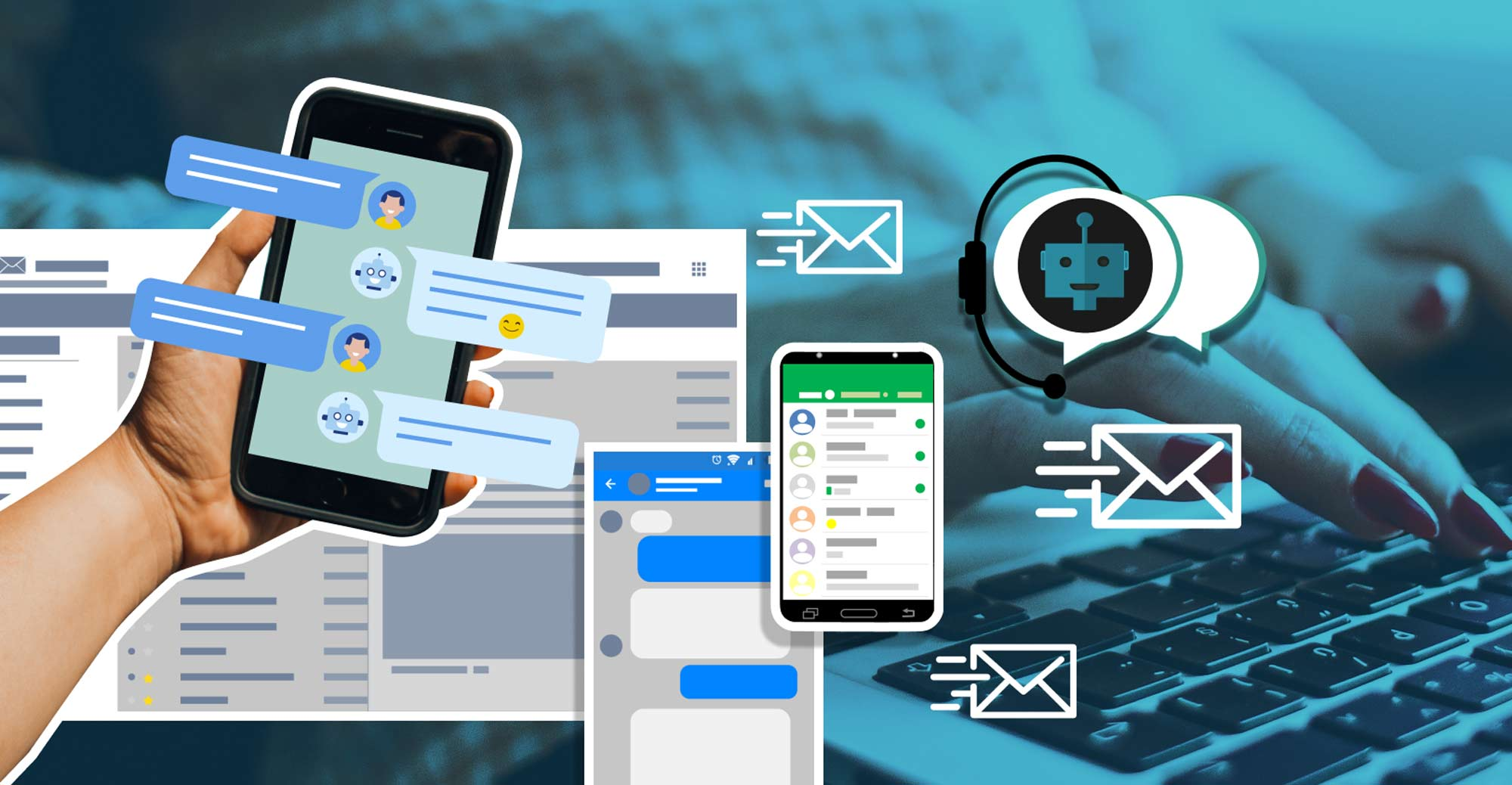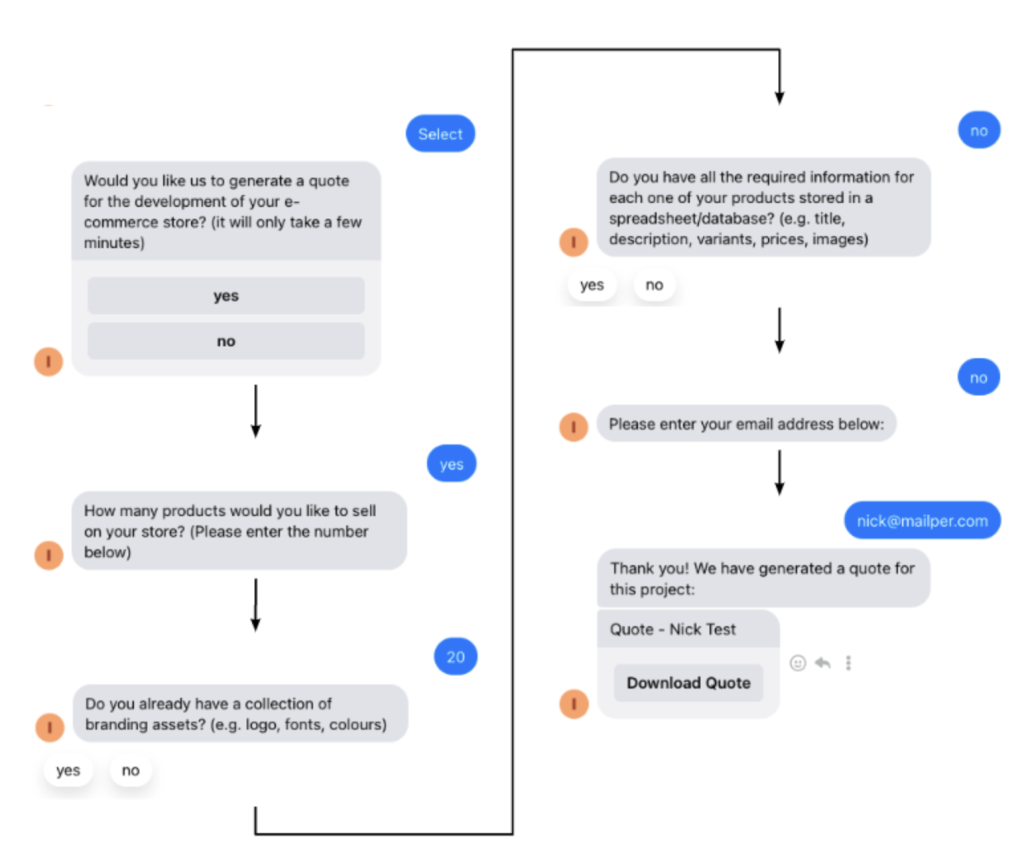
Potential Of Chatbots & Conversational Marketing On Social Media
In the ever-evolving landscape of marketing, staying up-to-date with the latest technologies and trends is crucial to remain competitive. One such technology that has been gaining significant traction in recent years is chatbots and conversational marketing. In this blog post, we will explore the potential of chatbots and conversational marketing on social media and how they can revolutionize the industry.
With the advent of social media, businesses have been presented with a new platform to connect with their customers. However, with the ever-increasing volume of customer inquiries and the need for immediate responses, traditional customer support methods may not be sufficient. This is where chatbots and conversational marketing come into play. By providing an automated, yet personalized approach to customer communication, chatbots can significantly improve customer engagement and support.
Understanding Chatbots and Conversational Marketing
Chatbots are computer programs designed to simulate conversation with human users. They use artificial intelligence (AI) and natural language processing (NLP) to understand and interpret user messages, providing instant responses to their inquiries. Conversational marketing, on the other hand, is a marketing approach that involves engaging with customers in a one-on-one, personalized conversation. Chatbots and conversational marketing go hand in hand, with chatbots acting as the means to facilitate the conversation.
The Benefits of Chatbots for Social Media Marketing

Improved customer engagement: By providing personalized communication and instant responses, chatbots can significantly improve customer engagement. According to a study by Drift, businesses that use chatbots for customer communication have a 2.5 times higher click-through rate (CTR) than those that don’t.
Cost-effective customer support: Chatbots can handle multiple customer inquiries simultaneously, reducing the need for human customer support. According to a report by Juniper Research, businesses can save up to $8 billion per year by implementing chatbots for customer support.
How Chatbots and Conversational Marketing Can Improve Customer Engagement
There are many ways in which chatbots and conversational marketing can enhance the engagement of customers with your brand.
By using NLP and AI, chatbots can provide personalized communication to customers, enhancing their experience and building brand loyalty. A study by Accenture found that 75% of consumers are more likely to purchase from a business that recognizes them by their name, recommends options based on their purchase history, or knows their purchase history.
Chatbots can provide instant responses to customer inquiries, reducing response times and improving customer satisfaction. A study by SuperOffice found that 41% of consumers expect a response within five minutes of contacting a business.
Chatbots can analyze customer data to provide relevant recommendations and product suggestions, enhancing their experience and increasing the chances of a sale. According to a study by Salesforce, 59% of consumers believe that tailored engagement based on past interactions is very important to winning their business.
Cost-Effective Customer Support with Chatbots
One of the primary benefits of chatbots is the cost-effective customer support they provide. In the traditional customer support model, businesses need to invest in hiring and training support staff to handle customer inquiries. This can be a significant expense, especially for small businesses. Some stats shared by Crowd Writer says that they experienced a 50% cut on their cost while introducing chatbots to their buy essay UK campaign in Feb-Mar 2022.
With chatbots, businesses can save on customer service costs as chatbots can handle customer inquiries without the need for human staff. This means that businesses can invest in chatbot technology and set up automated responses that can handle a wide range of customer inquiries. Additionally, chatbots can handle multiple customer inquiries at once, which increases efficiency and reduces wait times for customers.

A great example of cost-effective customer support through chatbots is H&M’s Kik chatbot. The chatbot provides customer support through Kik, a popular messaging app. The bot provides customers with personalized outfit recommendations and provides responses to frequently asked questions. The chatbot has reduced H&M’s customer service response time by 99%, and H&M has reported a 70% customer satisfaction rate with the chatbot.
Chatbots’ 24/7 Availability and Its Advantages
Another significant benefit of chatbots is their 24/7 availability. With 64% of consumers preferring 24/7 availability for customer support, according to a study by Comm100, it becomes more crucial. Unlike human customer service agents, chatbots can operate around the clock, providing customer support even when businesses are closed. This 24/7 availability eliminates time zone constraints and allows businesses to provide consistent customer service regardless of location or time.
Chatbots can also handle a high volume of inquiries simultaneously, which is impossible for human customer service agents. This can further improve efficiency and reduce wait times for customers.
One great example of 24/7 availability through chatbots is the Marriott Rewards chatbot. The chatbot provides support to Marriott Rewards members through Facebook Messenger. The bot provides personalized responses to members’ inquiries, including reservation confirmations, points balances, and promotions. The chatbot has allowed Marriott to provide 24/7 customer support to its members and has increased customer engagement with the brand.
Data Collection through Chatbots
Chatbots can collect valuable customer data that can help businesses improve their marketing strategies. By analyzing chatbot interactions, businesses can gain insights into customer preferences, pain points, and behavior patterns.

This data can be used to improve customer engagement by providing more personalized experiences. For example, businesses can use data collected by chatbots to offer personalized product recommendations or to tailor marketing messages to individual customers. The chatbot, which is available on Kik, provides customers with personalized makeup recommendations and tutorials.
Enhanced Marketing Opportunities through Chatbots
In addition to providing cost-effective customer support and data collection, chatbots can also enhance marketing opportunities for businesses. Chatbots can be used to generate leads, provide personalized content, and target customers with greater accuracy.
Lead generation is a crucial aspect of any marketing strategy, and chatbots can help businesses generate more leads by providing a personalized experience for users. By engaging in conversation with potential customers and asking them targeted questions, chatbots can collect information and qualify leads, which can then be passed on to sales teams for follow-up.
Sephora is a great example that has integrated chatbots into its mobile app and Facebook Messenger to provide personalized beauty advice and product recommendations.
While Summing Up…
While sum up, it can be said that chatbots and conversational marketing are powerful tools that can help businesses improve customer engagement, provide cost-effective customer support, and enhance marketing opportunities. By leveraging these technologies, businesses can stay competitive in the ever-changing social media landscape and provide more value to their customers.
As we have seen, chatbots and conversational marketing offer a range of benefits, from improved response times to more personalized communication. By incorporating these technologies into their marketing strategies, businesses can create more meaningful interactions with their customers, collect valuable data, and drive sales.
It is clear that chatbots and conversational marketing are here to stay, and businesses that fail to adapt to these new technologies risk falling behind their competitors. By embracing these tools and staying ahead of the curve, businesses can ensure they are providing the best possible experiences for their customers and staying competitive in the market.
Author Name

Melissa Calvert






